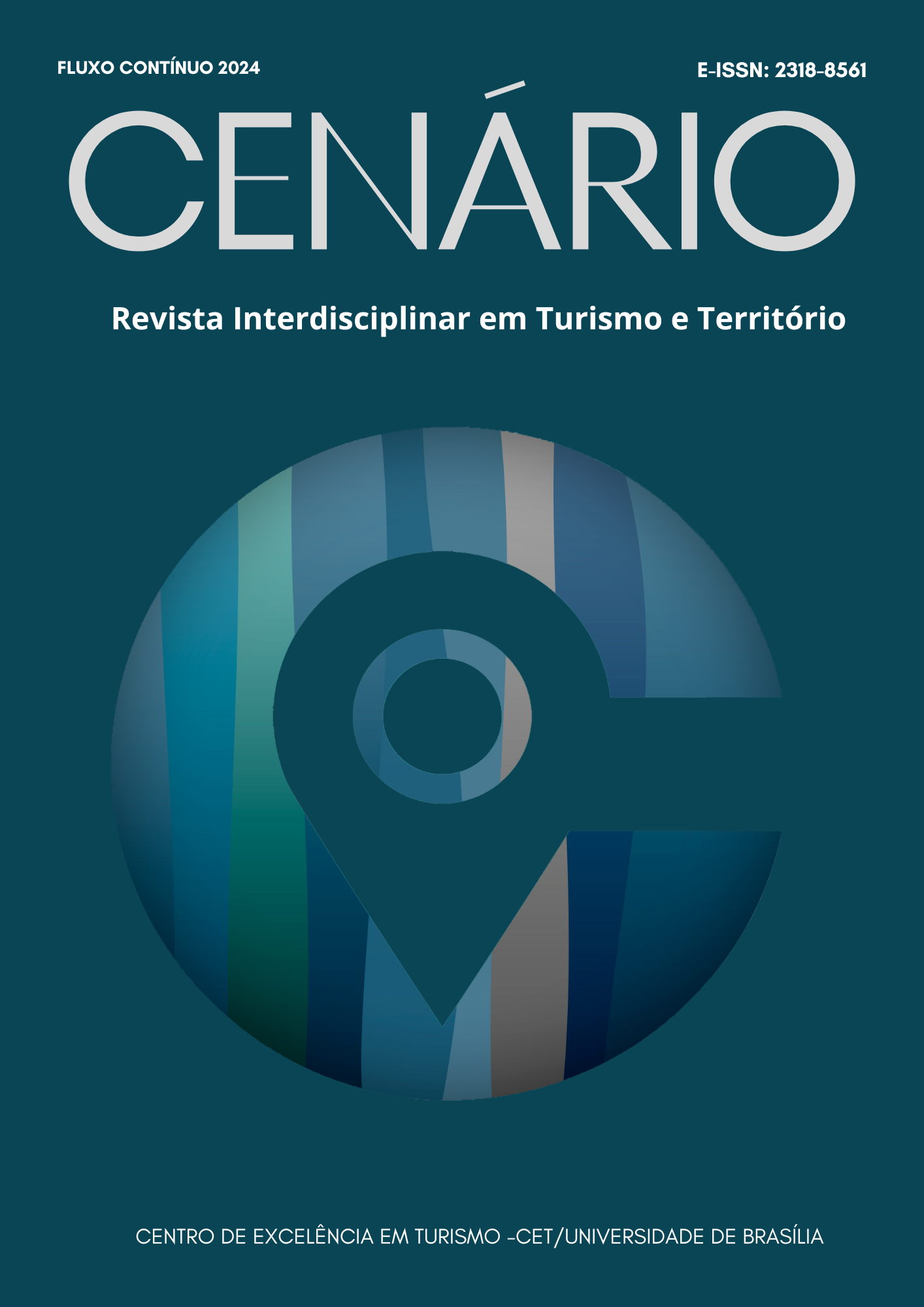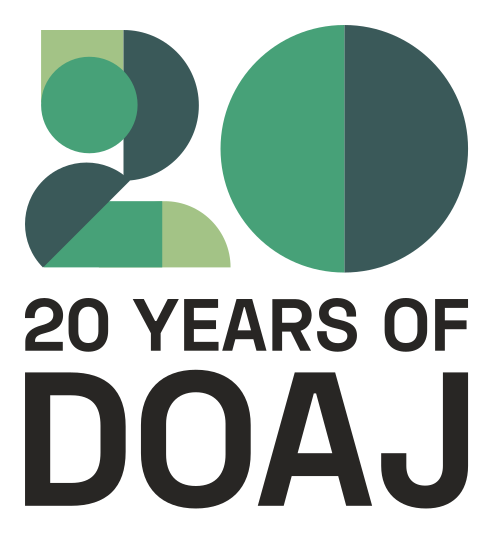Relevância do treinamento e desenvolvimento no ramo da restauração no município de Inhambane (Moçambique)
DOI:
https://doi.org/10.26512/rev.cenario.v12i1.56300Keywords:
Training. Development. Restaurant sector. Inhambane municipalityAbstract
The main objective of the study is to present the relevance of training and development in the restaurant sector in Inhambane municipality. As for the methodology, the study is qualitative and exploratory. To achieve the objectives of the study, bibliographical research on the topic under analysis and surveys applied to managers and employees of Inhambane municipality restaurants were used. The study concluded, overall, that training and development have a very significant influence on individual and organizational performance, with emphasis on: acquisition of skills and knowledge essential for employees to perform tasks with zeal and rigor; standardization/uniformity of services offered; increasing the quality of services offered by both restaurants and employees; and greater competitiveness in the local market. Therefore, it is considered important that restaurant companies operating in Inhambane municipality invest significantly in the training and development of their employees.
References
Afonso, A., & Nunes, C. (2019). Probabilidades e estatística: aplicações e soluções em SPSS.
Universidade de Évora.
Arroyo-López, P., Cárcamo-Solís, M., Álvarez-Castañón, L., & Guzmán-López, A. (2017).
Impact of training on improving service quality in small provincial restaurants. Journal of Food Service Business Research, 20(1), 1-14.
Bardin, L. (2016). Análise de conteúdo (L. Reto & A. Pinheiro, Trad.). Edições 70.
Barreto, L. (2011). Estratégias de gestão de pessoas e desempenho organizacional na
hotelaria: O papel das capacidades organizacionais [Tese de Doutorado em Adminis-tração, Universidade de São Paulo].
Bibi, P., Ahmad, A., & Majid, A. (2018). The Impact of Training and Development and
Supervisors Support on Employees Retention in Academic Institutions in Pakistan: The Moderating Role of the Work Environment. Gadjah Mada International Journal of Business, 20(1), 113-131.
Borges, P., Fonseca, M., Ferreira, J., Bezerra, P., & Lira, C. (2020). Avaliação de treinamen-to
com manipuladores de alimentos após
ocorrência de surto de toxinfecção alimentar em restaurante
universitário. Revista Univap, 26(52), 80-92.
Conselho Municipal da Cidade de Inhambane. (2009). Plano Estratégico do Município de
Inhambane 2009-2019: Inhambane, terra de boa gente, cidade alegre, turística, activa e ordenada! CMCI.
Conselho Nacional de Saúde. (2012). Resolução no 466 de 12 de dezembro de 2012:
Diretrizes e normas regulamentadoras de pesquisa envolvendo seres humanos. Bra-sília (DF): MS, Brasil. https://conselho.saude.gov.br/resolucoes/2012/Reso466.pdf; Consultado em [24 de agosto de 2023].
Dalimunthe, F., Syahputra, M., & Sitompul, S. (2018). The various factors affecting the
competence of the human resources in increasing competitiveness in the hospitality industry. Advances in Economics, Business and Management Research, v. 111, At-lantis Press, 172-181.
Deloitte. (2019). Leading the social entreprise: Reivent with a human focus.
Deloitte Development LLC.
Direção Provincial do Turismo de Inhambane. (2014). Plano estratégico de desenvolvimento
do turismo da província de Inhambane (2014-2020). DPTURI.
Direção Provincial de Cultura e Turismo de Inhambane. (2023). Dados de Formação do
Setor de Hotelaria e Turismo (período 2017-2023). DPCTI.
Dwomoh, G., Boachie, W., & Kwarteng, K (2017). The relationship between organizations’
acquired knowledge, skills, abilities (SKAS) and shareholders wealth maximization: the mediating role of training investment. International Journal of Information, Busi-ness and Management, 9(1), 154-166.
Gibbs, L., & Slevitch, L. (2018). Integrating Technical and Emotional Competences
in Hospitality Education. Journal of Hospitality & Tourism Education, Routledge, 1-12.
Gil, A. (2008). Métodos e Técnicas de Pesquisa Social (6a ed.). Editora Atlas S.A.
Goldenberg, M. (2004). A arte de pesquisar: como fazer pesquisa qualitativa em
ciências sociais (8a ed.). Editora Record.
Hai, T. (2021). Blended Learning in Hospitality Education and Training: Review
and Discussion. Advances in Social Science, Education and Humanities Research, v.573, Atlantis Press SARL, 227-231.
Holloway, J., Humphreys, C., & Davidson, R. (2009). The business of tourism (8th ed.). Pearson Education Limited.
Kim, S., Hahn, J., & Lee, J. (2015). Organizational attitudes as precursors to training
performance. Human Resource Development Quarterly, 26(4), Wiley Periodicals, 409-429.
Leite, N., Parolin, S., Bosquetti, M., Silva, L.; & Bianchi, E. (2009). Treinamento,
desenvolvimento e educação de pessoas: um desafio na estratégia organizacional. In L. Albuquerque & N. Leite (Orgs.), Gestão de Pessoas: perspectivas estratégicas. Atlas.
Lima, M., & Moreira, É. (2015). A pesquisa qualitativa em Geografia. Caderno Prudentino de
Geografia, 37(2), 27-55.
Mhlanga, O. (2018). Measuring restaurant service quality in East London, South Africa:
A comparison of restaurant customer expectations and perceptions. African Journal of hospitality, Tourism and Leisure, 7(2), 1-12.
Milićević, S., & Petrović, J. (2019). Human resource management as a factor of
competitiveness in tourism and hospitality. Tourism in function of development of the Republic of Serbia (TISC), 237-253.
Ministério do Turismo de Moçambique. (2004). Plano Estratégico para o Desenvolvimento do
Turismo em Moçambique (2004-2013). MITUR.
Ncube, F., Kanda, A., Chijokwe, M., Mabaya, G., & Nyamugure, T. (2020). Food safety
knowledge, attitudes and practices of restaurant food handlers in a lower-middle-income country. Food Science & Nutrition, v.8, Wiley Periodicals, 1677–1687.
Irfan, S., Mohsin, M., & Yousaf, I. (2009). Achieving Service Quality Through its Valuable
Human Resources: An Empirical Study of Banking Sector of Pakistan. World Applied Sciences Journal, 7 (10), 1222-1230.
Ocen, E., Francis, K., & Angundaru, G. (2017). The role of training in building employee
commitment: the mediating effect of job satisfaction. European Journal of Training and Development, 41(9), 742-757.
Page, S. (2007). Tourism management: Managing for change (2nd ed.). Elsevier Ltd.
Polo, F., & Cervai, S. (2018). The Role of Training in Organizations: a Comparative Case
Study of Employees and Management Pespectives. International Society for the Study of Work and Organizational Values, p. 77-83.
Rego, A.; Cunha, M., & Meyer, V. (2018). Quantos participantes são necessários para um
estudo qualitativo? Linhas práticas de orientação. Revista de Gestão dos Países de Língua Portuguesa, 43-57.
Santos, K., Ribeiro, M., Queiroga, D., Silva, I., & Ferreira, S. (2020). O uso de triangulação
múltipla como estratégia de validação em um estudo qualitativo. Ciência & Saúde Coletiva, 25(2), 655-664.
Simões, T., Mesquita, M., Saquet, L., Weis, G., & Lopes, L. (2017). Avaliação do impacto da
capacitação de colaboradores na satisfação dos usuários dos restaurantes universitá-rios da Universidade Federal de Santa Maria. Revista Desafio, 4(4), 154-166.
Stavrinoudis, T., & Psimoulis, M. (2017). How do education and training policies determine
customer satisfaction and hotels’ performance? European Journal of Tourism Re-search, v. 17, 177-190.
Şimşek, K., Çevik, H., & Mercanoğlu, A. (2021). Main qualifications required for employment
of recreation experts: the perspective of sector representatives. International journal of recreation and sport science, 5(1), 31-41.
Tuzzo, S., & Braga, C. (2022). O metafenômeno como gênese no processo de triangulação
da pesquisa qualitativa na era digital. Investigação Qualitativa em Ciências Sociais: Avanços e Desafios, v.14, 1-8.
Vogler, J., Thompson, P., Davis, D., Mayfield, B., Finley, P., & Yasseri, D. (2018). The hard
work of soft skills: augmenting the project-based learning experience with interdisci-plinary teamwork. Instr Sci, 46, 457-488.
World Economic Forum. (2022). Travel & Tourism Development Index 2021: Rebuilding for a
sustainable and resilient future. WEF.
World Tourism Organization. (2012). Global Report on Food Tourism. UNWTO.
World Tourism Organization. (2020). The Future of Work and Skills Development in Tourism.
UNWTO.
Downloads
Published
Issue
Section
License
Copyright (c) 2024 Cenário: Revista Interdisciplinar em Turismo e Território

This work is licensed under a Creative Commons Attribution-NonCommercial-NoDerivatives 4.0 International License.











